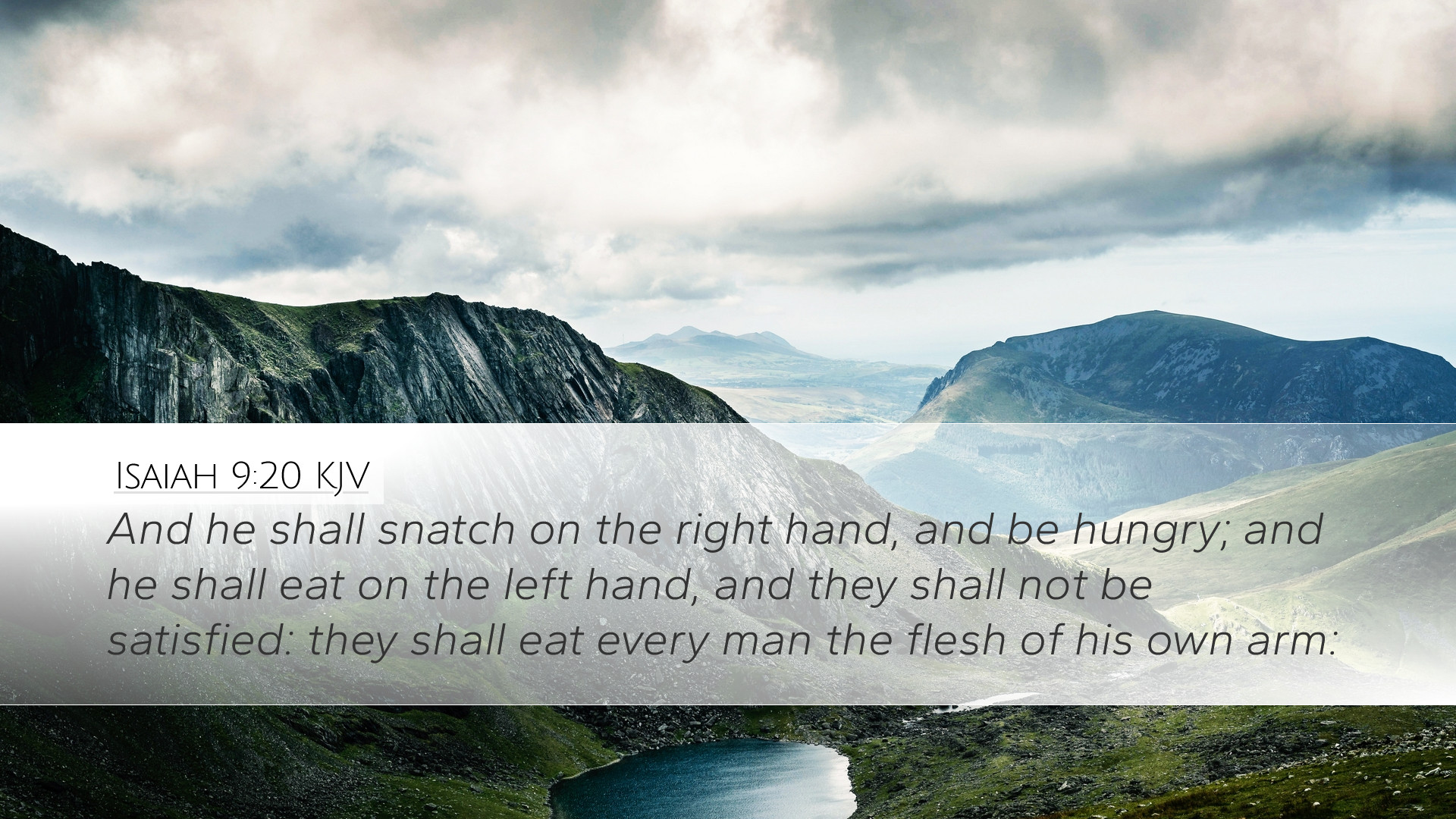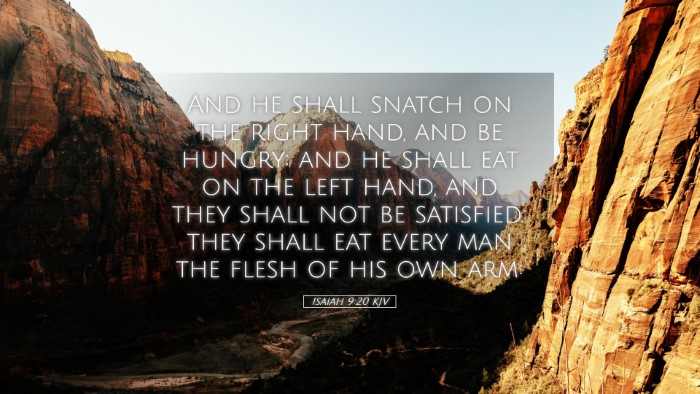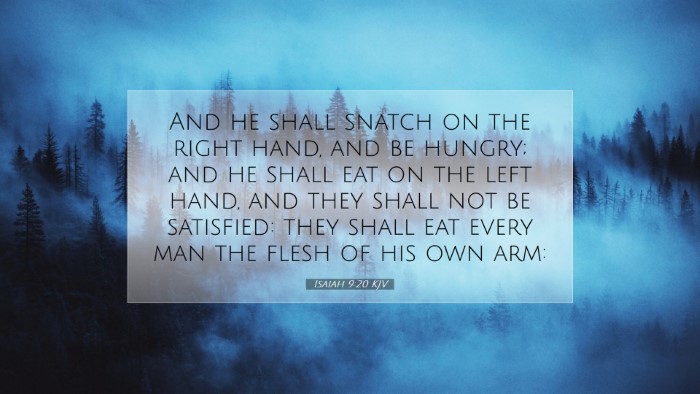Commentary on Isaiah 9:20
Text of Isaiah 9:20: "And he shall snatch on the right hand, and be hungry; and he shall eat on the left hand, and they shall not be satisfied: they shall eat every man the flesh of his own arm."
Introduction
The passage from Isaiah 9:20 serves as an evocative image of the dire consequences of sin and rebellion against God. It highlights the profound spiritual famine that besets nations and individuals when they turn away from divine truth. Insights from esteemed commentaries by Matthew Henry, Albert Barnes, and Adam Clarke come together to illuminate the text's implications for both ancient Israel and contemporary readers.
Contextual Overview
The book of Isaiah incorporates prophetic warnings, messages of judgment, and promises of hope. Isaiah was a prophet during a tumultuous political period in Israel's history, where moral decay and social injustice abounded. Understanding the broader context of Isaiah's ministry allows for a richer interpretation of verse 20.
Commentary Insights
Matthew Henry’s Perspective
Matthew Henry emphasizes the despair reflected in this verse, noting that the actions described signify a deep hunger resulting from societal collapse. Henry interprets the imagery of 'snatching' as indicative of desperation; individuals are so consumed by their need that they resort to cannibalism. This grim reality is a metaphor for spiritual starvation.
He further points out that this behavior is not merely physical but reflects a moral and spiritual deficiency. When people abandon reliance on God, they ultimately find themselves in a state of self-destruction. Henry's reflections suggest that nations, when forsaking divine guidance, can expect chaos and disarray to ensue.
Albert Barnes’ Interpretation
Albert Barnes similarly sees the verse as a depiction of the consequences of national sin. He notes that the act of "eating the flesh of their own arm" symbolizes the destructive nature of internecine conflict arising from greed and selfishness. Barnes contextualizes this as indicative of the breakdown of social bonds and communities when righteousness is cast aside.
Moreover, Barnes connects this passage to the ideas of famine and scarcity, both in a literal and spiritual sense. He argues that turning away from the path of righteousness leads to a deeper hunger for fulfillment—a hunger that nothing in this world can satisfy. This unquenchable thirst drives societies to extremes.
Adam Clarke’s Exegesis
Adam Clarke delves into the language of the verse, interpreting the ‘right hand’ and ‘left hand’ as representing all resources and options available to the people. Clarke suggests that despite having every opportunity for sustenance, they will still be ‘hungry’, illustrating a fundamental spiritual emptiness.
In Clarke's analysis, the phrase speaks to an ironic compassion; even though the people are attempting to care for themselves ('eating the flesh of their own arm'), they are inherently damaging their community. Clarke emphasizes the call for introspection and realization that without God’s guidance, self-serving actions lead to community disintegration.
Theological Implications
The theological themes present in Isaiah 9:20 speak profoundly to the conditions of the human heart. Each commentator addresses the consequences of falling away from divine truth and the inherent depravity that emerges without adherence to God. This commentary indicates a cycle of sin leading to suffering, where turning away from God results in a hunger for righteousness that cannot be satisfied apart from Him.
Conclusion
Isaiah 9:20 serves as a somber reminder of the cost of rebellion. The combined insights from Matthew Henry, Albert Barnes, and Adam Clarke illustrate the dangers of a society that prioritizes self over God. For pastors, students, and theologians, the call is clear: true sustenance is found in aligning ourselves with God's will and recognizing that without Him, we are left in a state of spiritual famine.
Reflection Questions
- How does this passage challenge our understanding of spiritual sustenance in contemporary society?
- In what ways do we witness the effects of spiritual hunger in our communities today?
- What steps can we take to draw people back to the source of true fulfillment?


